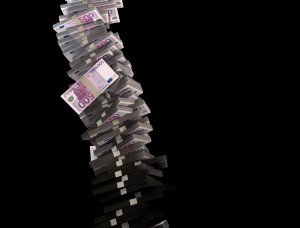 CJEU: reimbursement of legal costs in IP infringement proceedings must not be disproportionate or even insignificant
CJEU: reimbursement of legal costs in IP infringement proceedings must not be disproportionate or even insignificant
On 28 July 2016, the CJEU ruled in a case concerning the reimbursement of legal costs in a patent infringement action in Belgium (United Video Properties Inc. v. Telenet NV, C‑57/15). It declared that a flat fee reimbursement system, which imposed amounts that were significantly below the average rate actually charged for the service of a lawyer in the Member State at issue, leading to insignificant reimbursements, was contrary to Article 14 of the Enforcement Directive. While this decision has immediate effect on the law in Belgium, from where this case was referred, IP lawyers are musing about the possible impact on other flat-rate based reimbursement systems in the EU, including e.g. in Germany.
Background: rigid flat-fee system with low ceilings in Belgium
The plaintiff in the infringement action, United Video, had been unsuccessful in first instance, appealed and then withdrew the appeal. United Video therefore had to reimburse the successful defendant’s, Telenet’s, legal fees. The lawyers acting for Telenet had charged over 185,000 EUR and the patent attorney more than 44,000 EUR. However, according to Belgian procedural law, which provides for a flat fee system for reimbursement, coupled with strict ceilings, only 11,000 EUR were to be reimbursed for lawyers’ fees. The patent attorney’s fees were not recoverable as costs for technical experts could only be claimed where there was “fault” on the part of the losing party. Telenet complained that this was not in line with Article 14 of the Enforcement Directive [Directive 2004/48/EC on the enforcement of intellectual property rights], and the Court of Appeal of Antwerpen asked the CJEU for guidance.
Legal issue at stake: proportionate and reasonable costs
The Enforcement Directive aims at harmonising the national laws of the Member States with respect to sanctions for IP infringements. Its Article 3 sets out that these must be effective and dissuasive. Article 14, whereby the unsuccessful party must, in general, bear the “reasonable and proportionate legal costs” of the successful party, was put in that context: also the cost exposure should have a dissuasive effect. Therefore, a reimbursement so low that it is disproportionate and even insignificant was held to deprive Article 14 of its practical effect. The costs of a technical adviser (i.e. normally a patent attorney) were also held to be directly and closely linked to the judicial action so that an additional hurdle like “fault” could not be introduced. That said, a system of flat rate reimbursement was not per se contrary to the Enforcement Directive. Such a system could be intended precisely to ensure that only reasonable costs were recovered and to avoid the reimbursement of excessive costs, this system was in line with EU rules.
Impact
Belgian courts and the legislative will have to draw their consequences from this ruling. In other EU Member States, the discussion is only just starting. For example, also German procedural law provides for a flat-rate system. While more flexible than what has been seen to be the case in Belgium, also in Germany, reimbursement tends to lag significantly behind the actual (and usual) costs, certainly in patent cases. Similarly, in Spain, reimbursement is normally ordered based on flat fees, although in theory, courts are not bound by rigid ceilings. Even so, the recoverable fees generally stay far behind the actual costs incurred.
While it is not desirable that legal costs enter into an endless upwards spiral to the detriment of unsuccessful counterparties, some more realism on the part of the courts in the EU Member States when dealing with cost claims, as imposed by the CJEU, will be positive. Certainly, disproportionately low flat fees cannot be justified by the fact that there may be cases where the actual costs are significantly below the recoverable statutory fees. This so-called “mixed calculation”, an argument used in Germany to justify sometimes disproportionately low statutory fees, does not take into account the litigants’ interests in a specific case but only those of the lawyers acting on their behalf. On the other hand, rules on reimbursement of costs in IP proceedings are not separate or distinguishable from those in other types of judicial proceedings. As such, the impact of the CJEU ruling may go way beyond the harmonised law of IP enforcement and affect areas left to the national legislators where the EU has no say at all.
***
_____________________________
To make sure you do not miss out on regular updates from the Kluwer Trademark Blog, please subscribe here.


